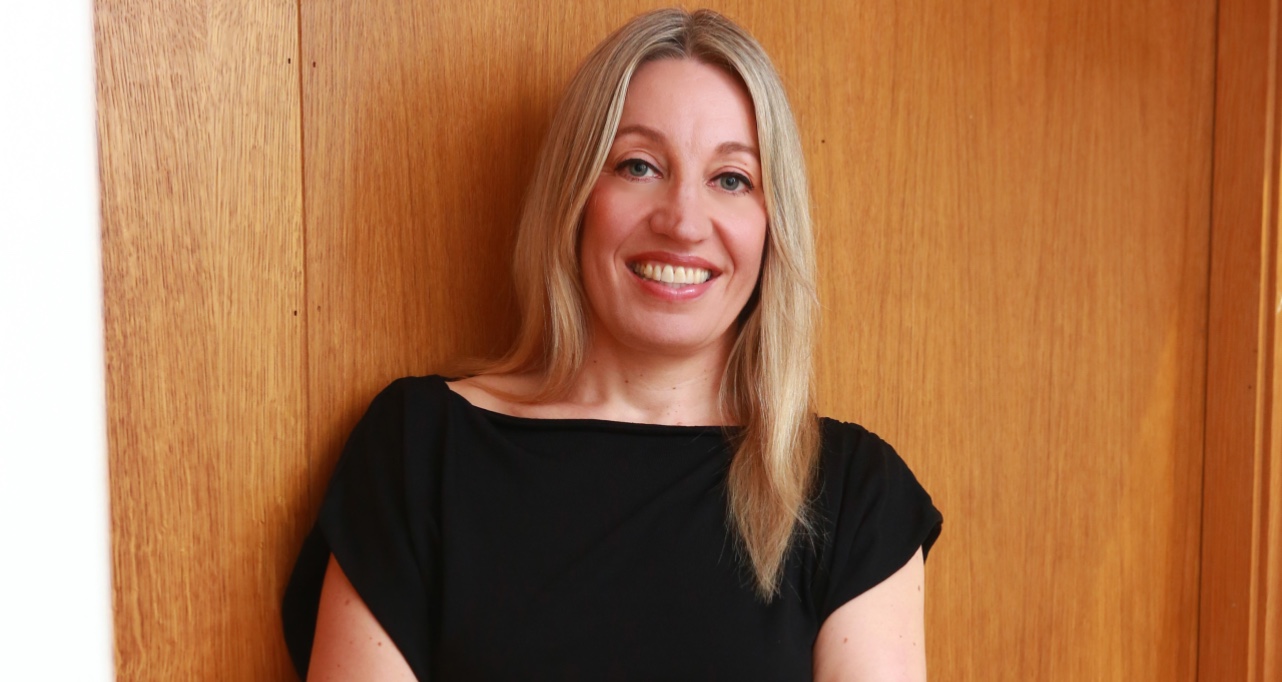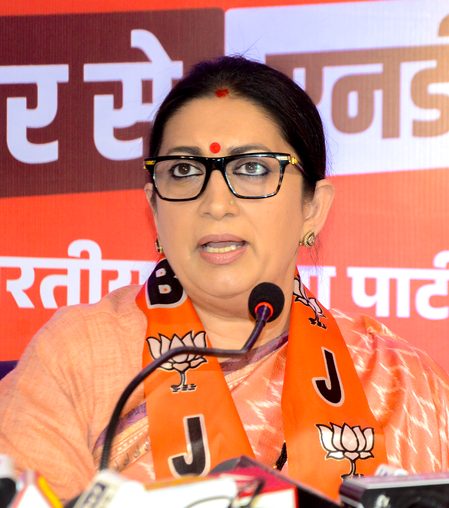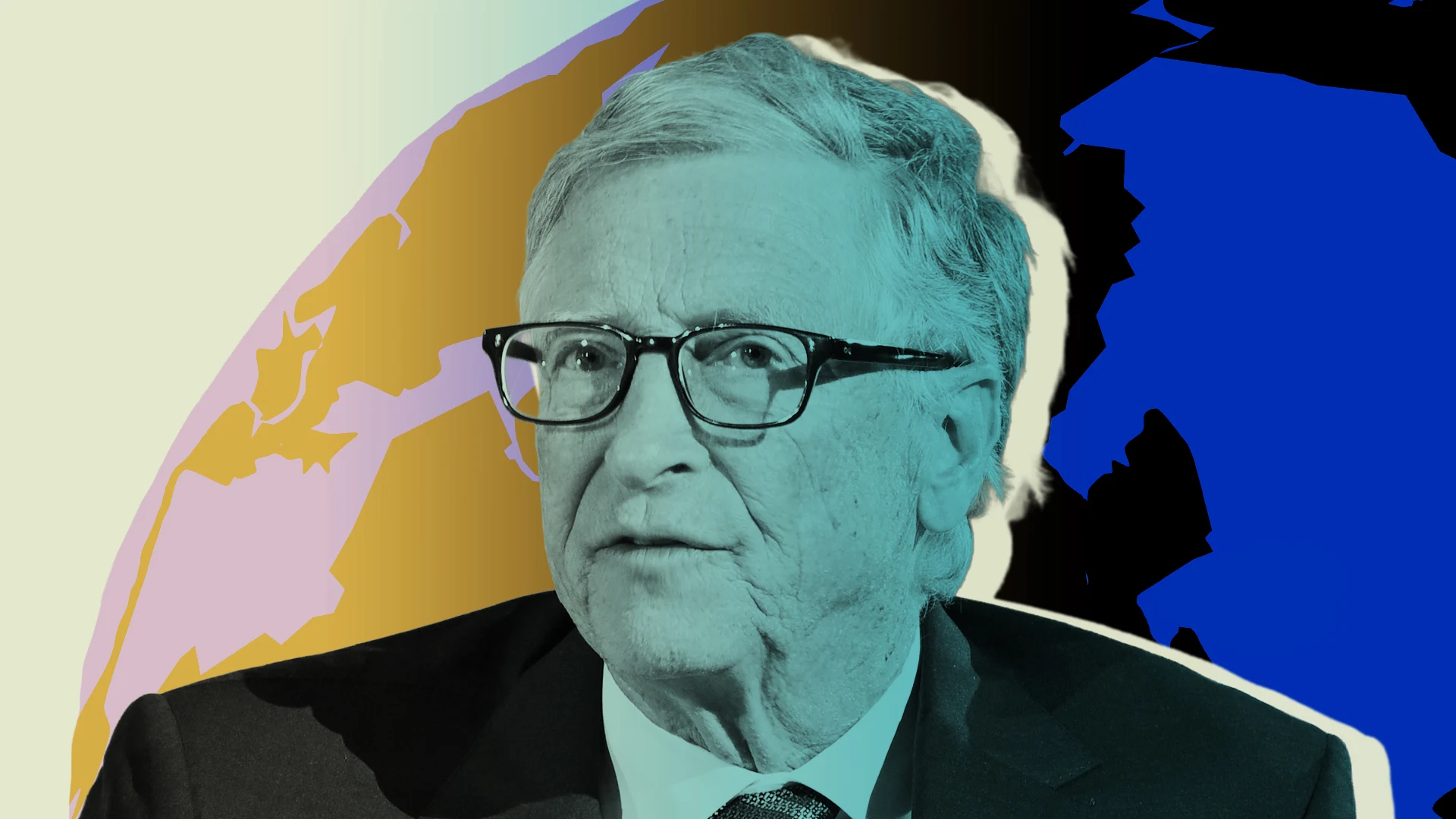Copyright trend

BAKU, Azerbaijan, November 4. The European Bank for Reconstruction and Development (EBRD) has introduced its new Environmental and Social Policy (ESP 2024). The policy reinforces the bank’s commitment to ensuring all its investments meet the highest environmental and social standards. In an exclusive interview with Trend, Maya Hennerkes, Managing Director of the Environment and Sustainability Department at the EBRD, described this period as a crucial moment for advancing environmental and social goals. "It’s an extremely important and exciting time to work on environmental and social matters. I think it’s probably never been more important," she said. "Every single euro, every single dollar that goes out of our doors is checked against the requirements of our environmental and social policy. We really want to make sure that we have good international practices, project by project, consistently," Hennerkes noted. Hennerkes emphasized that the new policy applies across EBRD’s expanding geographical scope, covering countries from Azerbaijan to sub-Saharan Africa and Iraq. "That often really means also beyond the project-by-project work that we’re trying to elevate and build capacity. We support policy of governments that have sustainable goals, and we engage very closely locally with stakeholders, with communities," she explained. She underlined that EBRD’s environmental and social specialists play an active role on the ground. "They spend a lot of time really on site with their rubber boots on their feet and with a PPE protection kit on the body, walking around, engaging with people, learning from people, having dialogue with local village communities, with local authorities, and so on," Hennerkes The ESP 2024 seeks to balance the bank’s strong safeguards with its broader mission to foster green finance and inclusive growth. "When you work on green finance, you see the full circle of how this green transformation needs to go about," the bank's rep said. "We want to make sure that on the impact side, we have ideally no negative impact, or if there are impacts that arise from a project, that we can mitigate those to a satisfactory manner". She added that financing the transition to greener and more inclusive economies remains central to the EBRD’s work. "We need to make sure that we channel the funding to the right use of proceeds, to the right projects, so that we have a lot of green projects, for example. But these safeguards are always a precondition that we will not negotiate". Hennerkes noted that the ESP 2024 embodies the EBRD’s continued effort to combine environmental protection, social inclusion, and responsible financing. "Working in this area brings all the pieces together - the impacts, the goal setting, the business opportunities, and the really careful approach to risk mitigation," Environmental protection, social inclusion, and economic growth Further speaking, the managing director pointed out that environmental protection and social inclusion go hand in hand, reinforcing one another and driving economic growth across the EBRD’s regions. "Where you have strong environmental protection, that also provides a greater assurance for all social groups. By protecting the environment, we’re also fostering social inclusion, and by supporting both, we absolutely bring about economic development in the bank’s regions," Hennerkes said. She noted that while climate change presents major challenges, it also creates new opportunities. "We have a huge transformation process happening in industries - a massive industrial and economic transformation. And with that come new high-quality jobs in green industry areas and business opportunities through improved natural capital," she explained. However, Hennerkes acknowledged that environmental and social goals may occasionally conflict. "We see that, for example, when we’re financing a wind farm that may affect the livelihoods of locals working in that area," she said. "This is where we work very carefully through our environmental and social policy to make sure that by pursuing one goal, we’re never negatively impacting Azerbaijan’s green potential and EBRD investments Turning to Azerbaijan, the bank's rep emphasized the country’s strong potential for green growth. "Azerbaijan specifically has great untapped potential for this green transformation," she said. "It was very inspiring to see the momentum during COP29 in Baku, where we saw a lot of signings with Azerbaijani companies for green The EBRD, she added, has already financed about 1.2 GW of renewable energy capacity in Azerbaijan. "We are expecting CO₂ emissions reductions of 600,000 tons annually from those investments. But it also generates clean electricity for 300,000 homes. If you have homes that have clean electricity instead of using diesel generators, that has clear positive health impacts - so socially, it’s also very beneficial," Hennerkes said. She also highlighted the EBRD’s support for Azerbaijan’s renewable energy auctions. "We’ve been involved in every utility-scale renewable project and also helped the government design the auction system for energy projects. It’s a really good thing for the market - it brings transparency and attracts other investors who then feel confident to invest in Azerbaijan’s energy sector," she explained. "Overall, there’s a huge potential, and we’re definitely very excited to do more with Azerbaijan. We’re actively looking for more projects - and for the right projects," she concluded. New provisions for capital market Speaking about the ESP 2024, Hennerkes also highlighted new provisions related to capital market financing. "While in the past we tried to limit environmental and social risks through capital market structures mainly by excluding higher-risk projects, we’ve now decided to be a bit more bold. Instead of excluding them, we’re putting a focus on managing them well," she said. To achieve this, the EBRD plans to work more closely with potential issuers before they launch bonds. "We’ve designed an approach to work with potential issuers early on their own environmental and social management systems, so that they have a really strong system in place before they issue a bond. We’re trying now to strengthen the additional component of very strong environmental and social safeguards so that the ultimate package is even stronger," Hennerkes noted. Another key feature of the revised policy is a risk-based approach to project assessment. "We want to really spend our time and expertise on those projects where the risks are high and where a lot more review and assessment is needed," the bank's rep explained. "Different projects have different needs, so we’re moving away from a one-size-fits-all model". The bank has also systemized early stakeholder engagement to ensure local concerns are addressed proactively. "We now have dedicated resources - people who are very versed in stakeholder engagement and can work with those concerns in a proactive way. We just want to be really upfront and engage very early to make sure that concerns do not go unaddressed," the managing director Protection of vulnerable communities and inclusion "Promotion of inclusion is super important, and protection of vulnerable communities is obviously equally important. We have a provision in our policy that requires us to look at potential impacts for vulnerable people around our projects, specifically for each project. All adverse impacts need to be avoided as much as possible, and if they can’t be avoided, then mitigated," Hennerkes She stressed that every project must identify specific vulnerable groups and address their needs: "We recognize that vulnerable people are often more negatively impacted if a negative impact stems from a project. This is a very, very strong focus for Inclusion goes a step beyond safeguards, Hennerkes explained, focusing on proactive opportunities for economic participation. "Some of our projects have very dedicated inclusion impact goals, for example, women in business lines or youth in business lines, where we focus on specific groups to help them contribute to and benefit from economic development," she said. Collaboration with governments, private sector, and civil Hennerkes also highlighted the importance of collaboration beyond the bank itself. "All environmental and social challenges are bigger than ourselves or the institution. Governments, legislation, and policy are key. We promote strong environmental protection policies and help governments implement ambitious climate-related goals, such as through low-carbon pathways initiatives for high-emitting sectors like fertilizers or steel," The private sector, she added, is central to the EBRD’s work: "EBRD is a private-sector-focused MDB. Around 80% of our business is private sector. They are really the ones doing the transformation, improving industrial processes, enhancing manufacturing efficiency, and optimizing transportation of goods. We support them with our financing". Civil society engagement is another critical component. "Our projects do not exist in isolation. Civil society stakeholders give us feedback, criticism, and insights that make our work better," she said. The EBRD maintains dedicated teams for civil society engagement, arranging meetings during official visits and ensuring consistent stakeholder consultation. For large-scale, high-risk projects, the EBRD’s environmental and social safeguards require extensive community engagement. "We have a whole performance requirement - ESR10 - dedicated to community outreach and stakeholder engagement. It lays out very clearly what we expect from ourselves and our clients in terms of engagement, consultation, and disclosure. It is ingrained in our day-to-day project work," Hennerkes explained. Tackling the triple environmental The European Bank for Reconstruction and Development (EBRD) is intensifying its efforts to address the interconnected global crises of climate change, biodiversity loss, and pollution, added "We are facing really a triple challenge. It’s a climate challenge, but it’s also a nature and biodiversity crisis, and it’s also a pollution crisis. That really makes this a very, very big and very interlinked challenge, and that makes this also so pressing and so urgent that we address environmental and social matters consistently through every single financing that we do," The managing director emphasized that environmental and social sustainability have been a core element of the EBRD’s operations since its founding. "It’s always been there, so it’s not new for us. But of course, we adapt to the challenge, and the challenge right now is really getting more urgent and more pressing," she Addressing expectations for COP30, Hennerkes noted that the country’s focus on biodiversity will likely influence the global agenda: "We are also planning to step up our activities for nature and biodiversity. We already have a very strong safeguard for nature and biodiversity, but we’re also thinking about more activities to channel more financing towards nature projects". Hennerkes underlined that pollution reduction remains integral to the bank’s work - both through safeguards and financing. "We continue our tried and tested approach, which is the combination of our very strong safeguards, the Paris alignment as a precondition to all of our investments, and EBRD’s green economy transition goals," she explained. The bank is also preparing to update its Green Economy Transition approach. "One of the things we’re thinking is to help our clients to really do more on climate adaptation," Hennerkes said, highlighting Central Asia as a region already facing very strong climate vulnerabilities. According to her, the EBRD’s evolving strategy will maintain its core principle: addressing environmental and social issues as an inseparable part of sustainable development.



